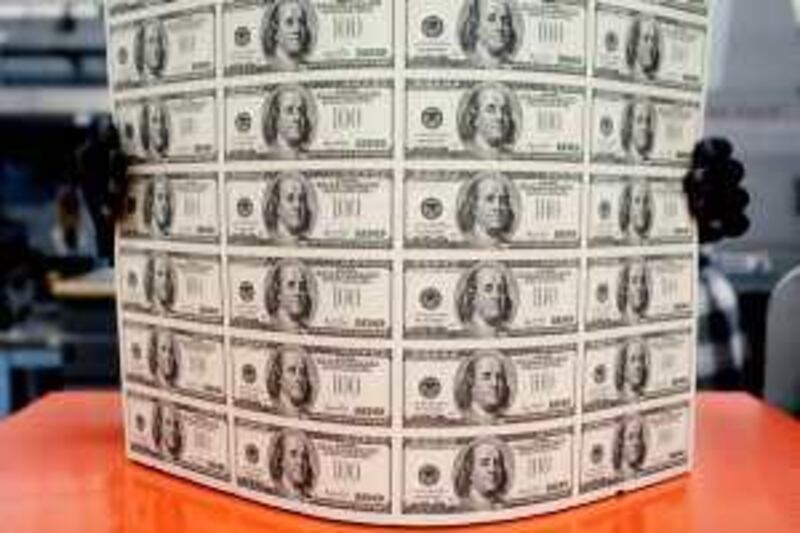The US dollar - to which the Arabian Gulf currencies including the UAE dirham are pegged - will remain the dominant global reserve denomination for the foreseeable future due to the size and strength of the US economy, a Moody’s report said.
The US dollar accounts for 63 per cent of global reserves, according to Moody’s, while the euro is in second place at 20 per cent, but has suffered the largest proportional decline over the past decade. Future demand for the euro will depend on the strength of its institutions and risk mitigation mechanisms.
“The transparency of the US financial markets as well as the stability and predictability of US monetary policy reinforce the safe-haven legacy that the US dollar holds,” said Colin Ellis, chief credit officer for EMEA at the rating agency and co-author of the report.
No other alternative currency reaches even a 5 per cent share of reserves. The Japanese yen ranks third, lagging the euro by a substantial margin, having overtaken the pound sterling in the past decade.
The size of the US economy and the level of foreign trade means the US dollar will retain its top currency position despite the gradual progress of alternatives such as the Chinese renminbi.
_______
Read more:
[ While the US dollar shone in May, it is now taking a breather ]
[ US dollar takes centre stage in the financial universe ]
[ US dollar strengthens as geopolitical risks ease ]
________
Increased relations between China and other countries will expand the use of renminbi as a medium of exchange, but a broader opening of China's capital account would require a restructure of China's financial system, Moody's said. "It will likely be several decades before the global status of the US dollar is challenged by any currency."
Reserve currencies have to be stable and are expected to hold relative value through business cycles and asset price volatility. Governments that issue reserve currencies enjoy greater liquidity, which widens access to capital. However, those countries must also contend with the trade impact of unusually strong demand for their money, the report said.






